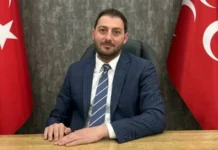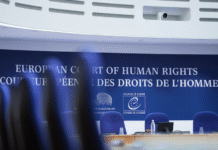The Turkish consulate in Rotterdam, the Netherlands, has confiscated the Turkish passports of a number of Dutch-Turkish people who are allegedly affiliated with the Gülen movement, reported by nltimes.nl. The Turkish people involved were told Dutch media that they are now classified as a fugitive and were given a one-day passport to fly to Turkey and prove their innocence in front of a judge.
The confiscation of passports and the refusal to offer the consular services across the world in great part hit members of the Hizmet (service) movement, which is inspired by the teachings of US-based cleric Fethullah Gülen and focuses on science education, volunteerism, interfaith and intercultural dialogue and charity aid. The movement runs a worldwide network of high-performing and very competitive schools in over 150 countries. Turkish teachers employed in these schools and other Hizmet volunteers suddenly found themselves stranded in host countries when their passports were arbitrarily revoked by the Turkish government. In several cases, the United Nations High Commissioner for Refugees (UNHCR) has been able to offer legal status to these people who are left in limbo and helped them navigate this troubled patch
According to the nltimes.nl’s report, after the Turkey’s Rotterdam consulate took their passports, four Turkish citizens have contacted with asylum lawyers. However, the lawyers believe that much larger numbers are involved. The report has also stated that the Dutch government knows about a number of cases in which Dutch-Turks’ passports were confiscated. An official has told to the Dutch media that each state has the authority to revoke a citizen’s passport. “The Netherlands has no influence on this”, he said. He could not say how many people had their passports confiscated by the Turkish consulate.
Abdullah Bozkurt, a Turkish journalist and the President of the Stockholm Center for Freedom (SCF), has stated in one of his recent articles that the pattern of increasing cases of revoking passports and the arbitrary refusal of consular services to critics and dissidents abroad by Turkey’s embassies and consulates is yet another example of how Turkish democracy has taken a turn for the worse on its way to becoming a 21st century autocratic regime that disregards its obligations and commitments under international law.
The undeclared policy being applied at Turkish consulates has victimized many Turkish nationals who are left without valid passports and unable to obtain official documents such as birth certificates and powers of attorney. Through the abuse of consular services in violation of Turkish law as well as international agreements, the persecution of vulnerable groups on the home front has now clearly spilled overseas. The practice differs from one consulate to another but ranges from outright refusal to serve Turkish citizens deemed disloyal to the regime of President Recep Tayyip Erdogan to citing technical difficulties as an excuse not to render services.
According to SCF’s Bozkurt, this represents a clear violation of the Vienna Convention on Consular Relations and its Optional Protocols (1963). Article 5 of this convention states that consular staff must protect, assist and help nationals, especially protecting the interests of minors and ensuring all nationals have appropriate legal representation to safeguard their rights and interests. The Turkish government’s policy of discrimination at consulates and embassies also contravenes its obligations under the International Convention on the Protection of the Rights of All Migrant Workers and Members of their Families (1990). If the victim is a woman, there may also be a case against Turkey under the Convention on the Elimination of All Forms of Discrimination against Women (1979).
Bozkurt has written that “Erdogan’s large-scale witch-hunt persecuting critics and opponents who have done nothing wrong other than exercising their right to dissent from the prevailing ideology of Islamists in the government has had global repercussions, creating rifts with other countries, placing Turkey in flagrant violation of international law and in contravention of its obligations under conventions. It is time to put a stop to this, not by naming and shaming Erdogan’s regime in Turkey, but rather with policy responses that will send a strong message to Turkey.”















